
Louis Marie-Anne Couperus was a Dutch novelist and poet. His oeuvre contains a wide variety of genres: lyric poetry, psychological and historical novels, novellas, short stories, fairy tales, feuilletons and sketches. Couperus is considered to be one of the foremost figures in Dutch literature. In 1923, he was awarded the Tollensprijs.

Tonny Eyk, pseudonym of Teun Eikelboom, is a Dutch composer, arranger, pianist, bandleader, producer, entertainer, columnist and writer. Eyk is also known for his appearances as a jury member in various television shows including Sterrenslag, Soundmixshow and Mini Playbackshow. His first book, Met Tonny Eyk naar de Provence, combines his love of the Tour de France and French gastronomy. Eyk is also an ambassador of the Dutch company Princess Household Appliances. Eyk graduated by majoring in trombone at the Royal Conservatory in The Hague.

Black Book is a 2006 war drama thriller film co-written and directed by Paul Verhoeven, and starring Carice van Houten, Sebastian Koch, Thom Hoffman and Halina Reijn. The film, credited as based on several true events and characters, is about a young Jewish woman in the Netherlands who becomes a spy for the resistance during World War II after tragedy befalls her in an encounter with the Nazis. The film had its world premiere on 1 September 2006 at the Venice Film Festival and its public release on 14 September 2006 in the Netherlands. It is the first film that Verhoeven made in his native Netherlands since The Fourth Man, made in 1983 before he moved to the United States.
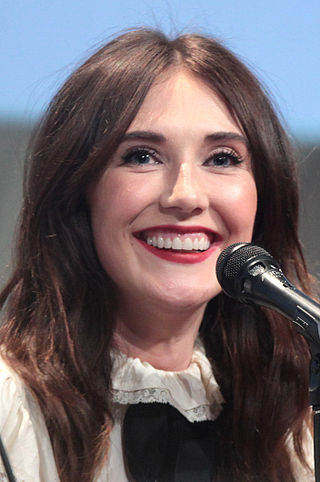
Carice Anouk van Houten is a Dutch actress. Her first leading role in the television film Suzy Q (1999) won her the Golden Calf for Best Acting in a Television Drama; two years later, she won the Golden Calf for Best Actress for Miss Minoes (2001).
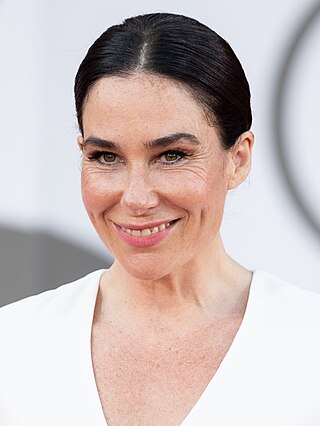
Halina Reijn is a Dutch actress, writer and film director.

A Thousand Kisses is a 2006 Dutch drama film directed by Willem van de Sande Bakhuyzen. It was based on the novel of the same name by Ronald Giphart. This was van de Sande Bakhuyzen's final film and was released posthumously.
The Crystal Film is a film award recognising domestic box office achievements in the Netherlands. The Crystal Film is awarded to documentary films from the Netherlands once they have sold 10,000 tickets.
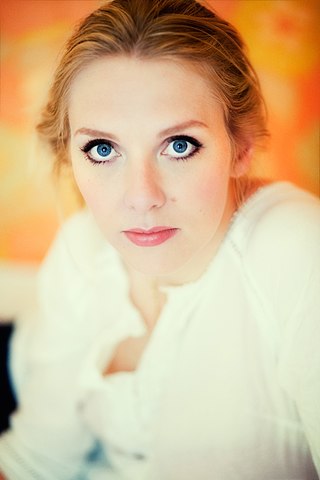
Jelline Floriska van Houten is a Dutch actress and singer. She has acted in Dutch films, musicals, and television series. She also played Sabine in the British TV series Fresh Meat.

The Academy of Theatre and Dance is a faculty of the Amsterdam University of the Arts which was known as de Theaterschool until September 2016. It runs four year Bachelor's degree courses in theatre and dance, and two year Master's degree courses offered by DAS Graduate School. The staff of instructors and guest instructors amounts to about sixty persons, nearly all also in active in the theatrical and dance field.

Alles is Liefde is a 2007 Dutch romantic comedy film directed by Joram Lürsen and written by Kim van Kooten and starring Carice van Houten, Paul de Leeuw, Wendy van Dijk, and Daan Schuurmans. The movie is loosely inspired by the British Christmas movie Love Actually.

Lepel is a 2005 Dutch-language family adventure film directed by Willem van de Sande Bakhuyzen. Filming took place in Germany, with scenes shot in Gera.

Reinout Oerlemans is a Dutch soap opera actor, film director, television presenter and television producer. He is the founder of the TV production company Eyeworks.
The following is a list of winners of the Golden Calf for best actor/actress at the Nederlands Film Festival. From 2021 onwards the award became a gender-neutral award.

Totok is an Indonesian term of Javanese origin, used in Indonesia to refer to recent migrants of Arab, Chinese, or European origins. In the eighteenth and nineteenth centuries it was popularised among colonists in Batavia, who initially coined the term to describe the foreign born and new immigrants of "pure blood" – as opposed to people of mixed indigenous and foreign descent, such as the Peranakan Arabs, Chinese or Europeans.

Dutch Indies literature or Dutch East Indies literature is the Dutch language literature of colonial and post-colonial Indonesia from the Dutch Golden Age to the present day. It includes Dutch, Indo-European and Indonesian authors. Its subject matter thematically revolves around the VOC and Dutch East Indies eras, but also includes the postcolonial discourse.
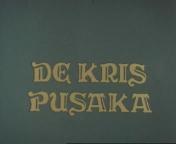
De Kris Pusaka is a Dutch television series broadcast by the Katholieke Radio Omroep. The series was written by Anton Quintana and directed by Bram van Erkel, with cinematography by Fred Tammes. It was a popular success. Its thirteen 25-minute episodes were broadcast from 31 October 1977 until 30 January 1978.

Pleuni Touw is a Dutch film, television and theatre actress best known for her role in the 1974 miniseries De Stille Kracht, which featured the first televised nude scene in Dutch history.
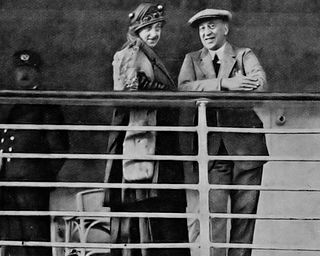
Elisabeth Wilhelmina Johanna (Betty) Couperus-Baud, was a Dutch translator. She was the wife of the Dutch writer Louis Couperus (1863–1923).

Hoepla ("Whoops") was a Dutch experimental cultural television show broadcast in 1967. It aimed at a young teenage audience and was notable for being unpredictable and risky in its subject matter, featuring reports, performances, declarations, and interviews that tied in with the subversive atmosphere of the Provo movement. Three episodes were made for the VPRO, and the show caused national controversy when a naked woman, Phil Bloom, appeared on the show, being the first time this happened on Dutch television. A fourth episode was taped but did not air until 2008. The show was written and produced by the team of Wim T. Schippers, Wim van der Linden, Willem de Ridder, and Hans Verhagen.

Julia Adolfs was the first woman of Indo-European descent to practice law in the Dutch East Indies. She studied at Leiden University in the Netherlands and began to practice in 1927 in Surabaya where she gained a reputation for practicing criminal law. Acting as an attorney for Chinese clients and Royal Dutch Shell she became prominent, investing her earnings in rental properties. When Indonesia gained independence, her properties were nationalized and she eventually moved to Monaco. A scholarship bearing her name is presented by the University of Amsterdam as a research grant for law students.


















